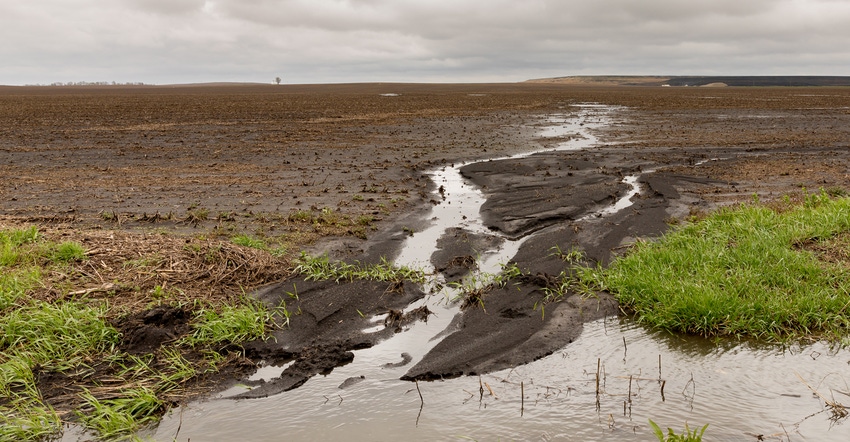
In a testy exchange with an ag reporter Thursday, Secretary of Agriculture Sonny Perdue defended the administration’s announcement of trade aid for farmers even though most producers are struggling to get their crops in the ground.
Earlier this month, the Trump administration announced $16 billion in aid to farmers to soften the blow of trade disputes with countries such as China. This includes the $14.5 billion Market Facilitation Program, where crop farmers will receive a payment based on a single county rate multiplied by a farm’s total plantings to those crops.
First payments will be made in late July or early August after Farm Service Agency crop reporting is completed. Second and third payments will be made in November and early January if conditions warrant.
It’s unclear, though, whether the program will cover prevented planting acres.
While speaking to Pennsylvania farmers, Perdue was asked why the department announced the trade aid before knowing the full extent of prevented plantings. The ag secretary was adamant that the department did not want to distort planting decisions, and he said that additional details regarding prevented plantings could be announced in the future.
“We have delayed details on that because we don’t American producers to put off their program and not plant their program," he said. “We're not trying to change planting intentions for any producer. Our advice to American producers is to do what you are doing based on the market. That's the way it ought to be, rather than trying to plan for a government program.”
According to the latest Crop Progress Report, only 58% of the corn crop in the top 18 corn states has been planted, way behind the overall five-year average of 90%. Soybean plantings are also behind, with just 29% of the crop in the ground in the top 18 soybean states, behind the five-year average of 66%.
Flooding and persistent rains have made it almost impossible for many Midwest and Northeast farmers to get corn and other crops planted.
A disaster aid bill that would provide $3 billion in assistance to flood-ravaged farms has been stalled by a single vote in the House even though the bill has passed in the Senate.
Perdue said farmers who can’t get their crops planted should take advantage of the crop insurance program to get help.
“If we see any opportunity to use the Market Facilitation Program to enhance or to help that, we will consider that," he said.
Reporting prevented plantings
If you have acreage that is eligible for a prevented planting claim, you must provide a notice of loss to your crop insurance agent within 72 hours after the final planting date for the crop, which varies by region. You can either get a full indemnity payment or let them know that you intend to plant after the final planting date during the crop’s late planting period.
For the final planting date in your area, talk to your crop insurance agent or go to RMA’s prevented planting website.
Farmers will get an indemnity payment based on the initial revenue guarantee for a crop. For corn, it is 55%; soybeans, 60%. For all other crops, visit bit.ly/preventedplantingcoverage and click on the “Which prevented planting coverage factors are changing for 2019?” tab.
The late planting period is up to 25 days after final planting date. For most crops, the timely planted production guarantee is reduced 1% per day for each day planting is delayed after the final planting date.
About the Author(s)
You May Also Like






